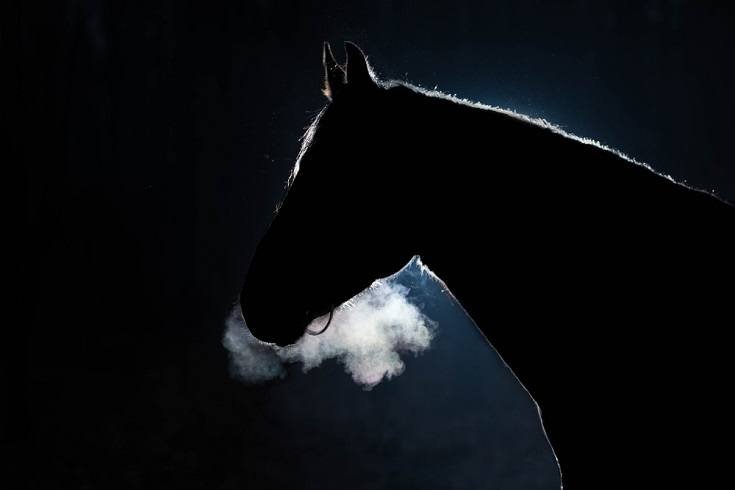Do Horses See in the Dark?
When we think about horses, we often imagine their strength, grace, and beauty. But how much do we really know about their vision? One common question many horse owners and enthusiasts have is: Can a horse see in the dark? The answer is more complex than a simple yes or no. Let’s dive into the fascinating world of equine vision to uncover how well these magnificent animals can see in low light.
Understanding Equine Eyes
Horses are prey animals, which means their vision has evolved to help them detect predators and navigate their environments. Their eyes are located on the sides of their heads, giving them a wide field of vision—about 350 degrees! This wide perspective is essential for spotting dangers from various angles. However, this positioning also means that their depth perception is not as strong as that of predators, which tend to have forward-facing eyes.
The Anatomy of a Horse’s Eye
A horse’s eye is quite different from a human’s. Horses have a larger cornea and a more prominent lens, which allows them to take in more light. This anatomical structure helps them see better in dim lighting compared to humans. Additionally, horses have a layer of tissue called the tapetum lucidum behind their retinas, which reflects light back through the retina. This adaptation enhances their night vision by making the most of any available light.
Night Vision Abilities
While horses cannot see in complete darkness, they are equipped to handle low-light conditions much better than humans. In dim environments, horses can see relatively well thanks to their superior night vision. They are crepuscular animals, which means they are most active during dawn and dusk when light levels are low. This adaptability allows them to graze and move around safely during these times.
Night Vision Abilities
To put it into perspective, humans have a limited ability to see in the dark. We rely on cones in our retinas, which are responsible for color vision and work best in bright light. Horses, on the other hand, have a higher proportion of rods, the cells that are sensitive to low light. This gives them a significant advantage when it comes to seeing in twilight conditions.

Factors Affecting a Horse’s Vision
While horses generally have good night vision, several factors can influence their ability to see in the dark:
- Age: Just like humans, older horses may experience vision deterioration. Conditions like cataracts can affect their ability to see clearly at night.
- Health: A horse’s overall health can impact its vision. Conditions affecting the eyes, like uveitis or retinal detachment, can hinder night vision.
- Environment: A well-lit environment can help horses see better. Conversely, unfamiliar surroundings can make them feel uneasy, which may affect their willingness to venture out at night.
- Color Sensitivity: Horses perceive colors differently than humans. They have dichromatic vision, meaning they see two primary colors. This may affect their ability to distinguish objects in low light.
Safety Considerations
Understanding a horse’s vision is crucial for ensuring their safety, especially in low-light situations. Here are a few tips for horse owners:
- Adequate Lighting: If you have a barn or riding area, make sure it is well-lit to help your horse navigate safely.
- Avoid Sudden Changes: Horses can be skittish in new or dark environments. Gradually introduce them to unfamiliar areas to help them adjust.
- Regular Check-ups: Keep an eye on your horse’s eye health. Regular veterinary check-ups can help catch any potential vision issues early.
- Use Reflective Gear: If you’re riding at dusk or dawn, consider using reflective gear on both yourself and your horse for added visibility.
More Popular Search




